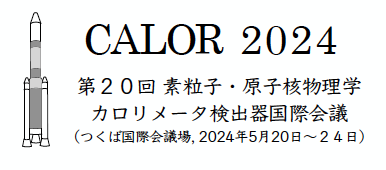Speaker
Description
The CMS electromagnetic calorimeter (ECAL) is a high resolution crystal calorimeter operating at the CERN LHC. The ECAL trigger system employs fast digital signal processing algorithms to measure the energy and timing of ECAL energy deposits recorded during LHC collisions. These trigger primitives are transmitted to the Level-1 trigger system at the collision rate of 40 MHz, and are combined with information from other CMS sub-detectors to determine whether the event should trigger the readout of the data from CMS to permanent storage.
This presentation will summarise the ECAL trigger performance achieved during LHC Run 3 (2022+). It will describe the improved methods that are used to calibrate the ECAL trigger primitives during LHC operation. In particular, we will describe the commissioning of a new automated procedure to derive, validate and deploy up-to-date time-dependent response corrections to the ECAL trigger primitives using in-situ measurements from a dedicated laser monitoring system.
The rejection of large unwanted signals (termed “spikes”), caused by the direct interaction of particles from LHC collisions with the APD photodetectors used in the barrel region (|eta|<1.48) of ECAL, has been an important issue for the Level-1 trigger since the first LHC collisions in 2009. We will describe how the rejection of spikes performed in the ECAL on-detector and off-detector electronics has evolved with changing LHC and detector conditions, and illustrate the potential of additional, currently unused, features of the ECAL on-detector electronics to improve the spike killer performance.
